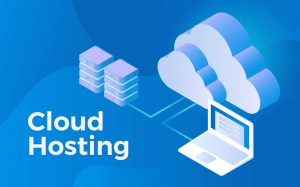Common Applications of Machine Learning in Businesses

Machine learning has been optimizing business processes for quite some time to make them more efficient. The technology has also helped businesses in improving their customer satisfaction percentages and ROIs. From using smart algorithms to predict what potential customers might like to planning and managing finances better, machine learning is now a highly-demanded technology among small, mid, and large-scale businesses from all over the world.
A Statista report says that in 2021, major use cases of machine learning and artificial intelligence were credited to the customer service sector with a 57% hold on the entire market. Now, this was just a sample of what businesses are achieving with the help of machine learning technology.
Furthermore, in this blog, we are listing down some common use cases of machine learning in businesses to give you a better understanding of the usefulness of the machine learning frameworks.
Cybersecurity
The boosted dependency of businesses on digital ecosystems has also impacted their vulnerability against cyberthreats. Thus, machine learning systems are used to monitor and fight these cyberattacks. AI and machine learning algorithms are deployed on business servers to continuously monitor any possible cyber attack attempts. These systems can also generate real-time alerts to warn business authorities on time.
Personalization
To improve customer experience, businesses are normalizing offering personalized services. Machine learning, with the help of big data collected through customer preferences or usage behavior, empowers personalized experience. These experiences could be recommendations of videos, songs, or products. Or, machine learning can shortlist the right learning materials or skill training programs that can help the customer.
Automation
One of the major advantages of machine learning is the ability to build automated ecosystems that support businesses. These automated systems are already used across industries involved in customer service, manufacturing, shipment, storage, etc. For example, in the shipping industry, with the help of machine learning, shipments are continuously monitored and tracked.
Their health is also kept in check with the help of the data collected through Internet of Things (IoT) sensors. Then, machine learning uses the data collected from these sensors to provide shipments with automated clearance at every checkpoint. This strategy saves time and helps businesses in delivering way faster.
Customer service
Machine learning helps businesses in improving their customer service quality as well. For example, machine learning can power AI algorithms to handle plenty of customer queries on their own. This process is already deployed across many organizations in sectors such as banking, fintech, retail, etc.
The popularity of automated customer service assistance is increasing due to its ability to solve customer queries faster and with better accuracy. However, it does not mean that human agents are entirely going out of business, their work burden, however, is reducing dramatically.
Demand prediction
Predictive analytics tools can use historical data and machine learning algorithms to prepare a demand forecast for businesses of any nature. This strategy is used in R&D departments to prepare risk-free business models and also to analyze competitor strategies better. Demand prediction tools also help businesses in reducing their waste by only manufacturing what is expected to be sold.
Fraud predictions
With the improved popularity of online transactions, chances of fraud have also increased in parallel. However, banking and fintech industries are working continuously to deploy smart servers that can protect customers from any possible online frauds.
To do that, machine learning comes into the picture. The technology is used by many banks today to keep an eye on the users’ spending behavior. This strategy generates the data that AI algorithms used to detect unusual transactions.
For instance, some credit card companies put an automatic temporary block on the account of the customer if the transaction made from their account is suddenly done from a region outside their usual location. Unless the customer has informed the bank about their travel, it can be considered a possibility that their account details have been compromised.
Content generation
Machine learning can also be used to do creative work like generating artworks, writeups, marketing campaigns, social media posts, graphics, videos, vector images, etc. To generate content within a short time, machine learning tools are a perfect choice. However, even advanced machine learning algorithms are not able to achieve human creativity even now but these tools are definitely suitable for fast work.
Data management
Digital businesses deal with a huge amount of data every hour. Thus, it requires them to ensure the smoothness, safety, and accuracy of the data that is being stored and traded every minute. Machine learning systems are capable of supporting systems to make that possible. These algorithms optimize data depending on the type of the server to make them more scalable.
Price predictions
This advantage of machine learning is used for a while now in airports, railways, and many other industries across the globe. Airports use machine learning to predict future fares. The technology uses historical data including past prices of tickets, the importance of events, the estimated number of passengers, etc to predict future ticket prices. Predictive algorithms of machine learning models are also used in sectors like retail, food delivery, etc.
Automated software testing
Increased digitization requires businesses to deploy software across business processes. However, processes like building, testing, rectifying, and release of software take time. Machine learning can ease the process by automating tasks like software testing.
There are automated testing tools existing in the market that can check the software compatibility and performance on multiple devices and platforms to provide data such as possible errors, performance issues, etc. Before finally releasing the software, this step can help businesses in avoiding unwanted criticisms.
Wrapping up
Well, these were all common use cases of machine learning across businesses that we found suitable for listing down. Now, machine learning is an evolving technology and we still have not explored its full potential yet. Thus, these use cases that we listed down might be just a glimpse of the endless possibilities that this technology possesses. As time passes, it will be exciting to see what real-world applications of machine learning come into existence that we do not know of yet.






